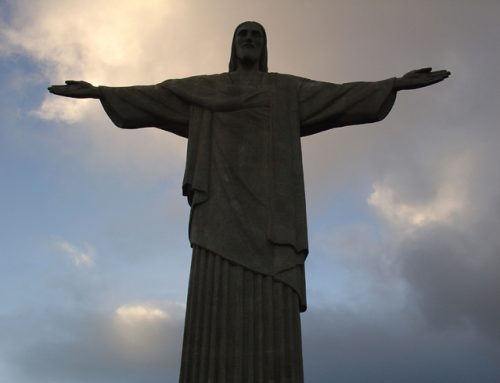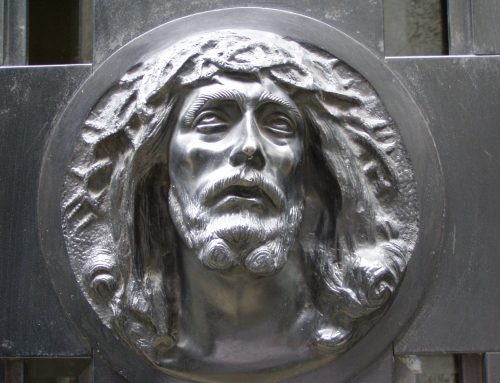“So they gathered them up, and from the fragments of the five barley loaves, left by those who had eaten, they filled twelve baskets. When the people saw the sign that he had done, they began to say, ‘This is indeed the prophet who is to come into the world.’ When Jesus realized that they were about to come and take him by force to make him king, he withdrew again to the mountain by himself. When evening came, his disciples went down to the lake, got into a boat, and started across the lake to Capernaum. It was now dark, and Jesus had not yet come to them. The lake became rough because a strong wind was blowing. When they had rowed about three or four miles, they saw Jesus walking on the lake and coming near the boat, and they were terrified. But he said to them, ‘It is I; do not be afraid.’ Then they wanted to take him into the boat, and immediately the boat reached the land towards which they were going.” (John 6:13-21) We turn now to John 6 for the next several Sundays. The passage before us today includes two remarkable events: the multiplication of the loaves and fishes and Jesus’ walking on water. The outcome of the first is that Jesus must retreat to avoid the crowd’s insistence that he become their king. In the process, he and the twelve are separated. What stood out to me this week is that the apostles leave Jesus behind. Are they afraid of the excitement of the crowd? Are they reconsidering their discipleship, wondering if they too might be in jeopardy of the authorities? We do not know. However what we do know is that they take off across the lake and “Jesus had not yet come to them.” It is always a little dangerous, isn’t it, to get ahead of Jesus? Anyway the water becomes rough and we can be certain that those disciples are quite troubled; but of course, not as troubled as they are about to become! For here comes Jesus, striding across the water. And what I find remarkable is what he doesn’t say to them. There is no rebuke: (“hey, did you forget someone?” or “where do you think that you are going?)” And, there is certainly no threat: “I ought to let you faithless fools sink! No, there is only a word of compassion and solace and one final display of his power to reach out and help even those who are running away. It is easy, is it not, to want to leave Jesus behind when it is no longer comfortable to be associated with him? It is one of the longest running traditions of discipleship: the desire to flee when the going gets hot. But Jesus comes to the twelve and he comes to you and me offering us solace and the opportunity to follow again. I take great comfort in the reality that the Gospel really is never about our response. Instead, it is ever and always about a Lord who will cross any distance and overcome any obstacle to seek and to save the lost.







Leave A Comment